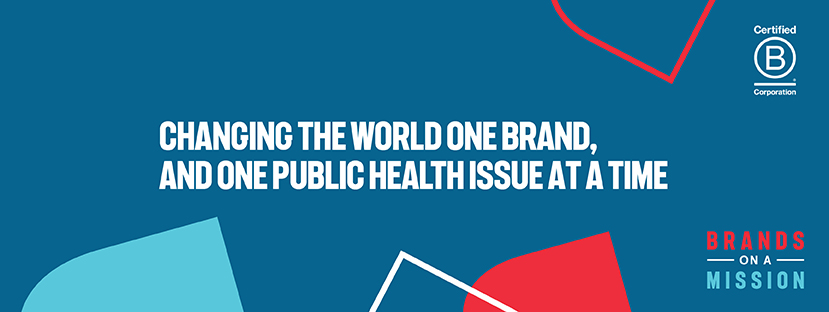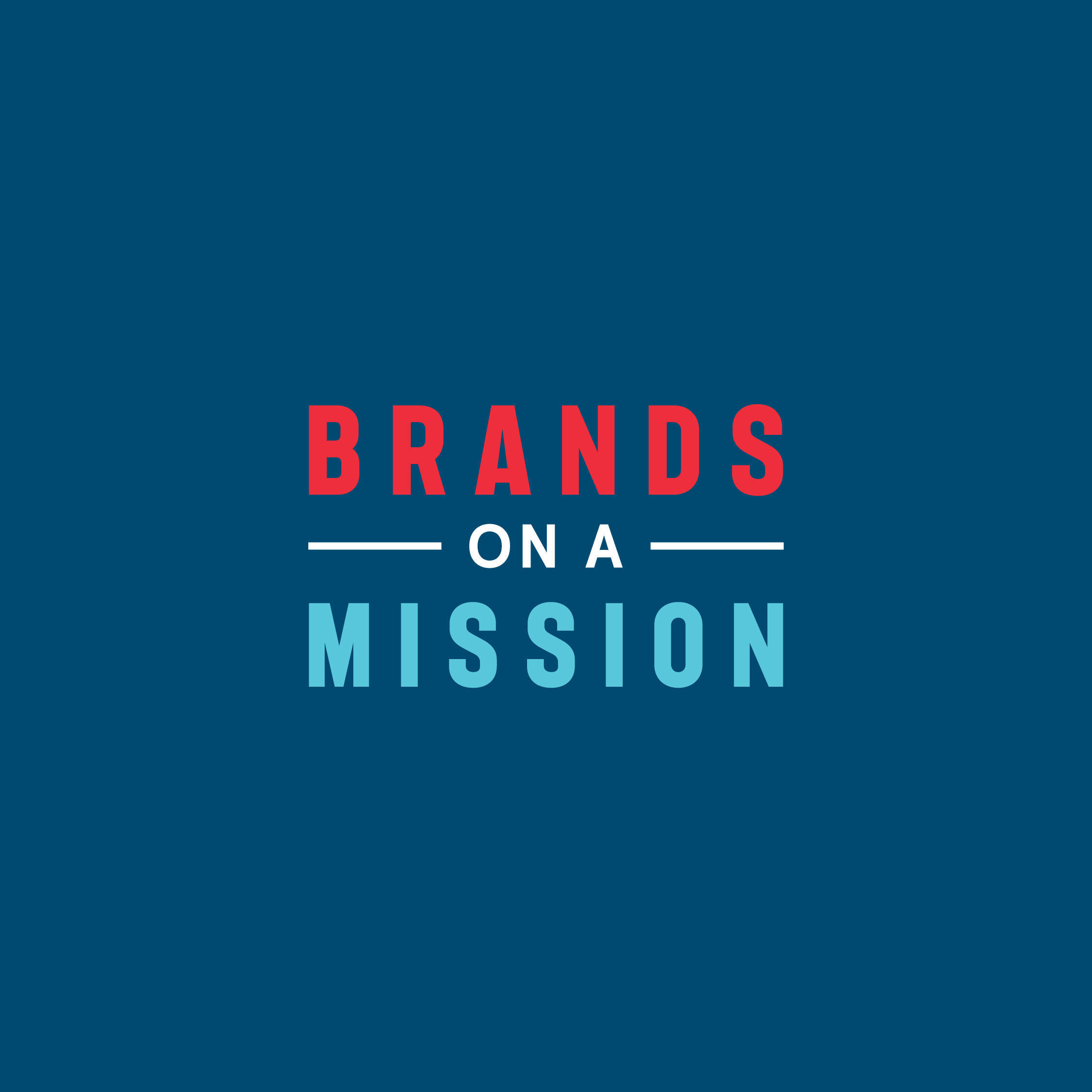



Brands on a Mission

Nairobi, Kenya
December 2021
Other professional, scientific & tech
Service with Minor Environmental Footprint
Belgium,
Bolivia,
Brazil,
Canada,
Chile,
Colombia,
Dominican Republic,
Ecuador,
Egypt,
India,
Indonesia,
Kenya,
Mexico,
Nigeria,
Pakistan,
Panama,
Paraguay,
Peru,
South Africa,
South Korea,
Sri Lanka,
Tanzania,
Uganda,
United Kingdom,
United States,
Uruguay,
Zambia
Brands on a Mission seeks to change the world, one brand and one public health issue at a time. Founded by Professor Myriam Sidibe, one of the world's leading experts of brands that drive health outcomes through mass behavioural change, Brands on a Mission helps brands accelerate their impact in global health and well-being. Its mission is to develop transformative business models that improve the lives of 100 million people sustainably and catalyse an additional $1 billion towards achieving the SDGs by 2030. While there are many brand purpose agencies that help brands define their purpose, very few help brands meaningfully and sustainably deploy their purpose as purpose is much easier said than done. Brands on a Mission uses its signature brand purpose deployment framework, the Purpose Tree, to bring purpose to life with benefits to the business, people and the planet.
Overall B Impact Score
Governance 18.3
Governance evaluates a company's overall mission, engagement around its social/environmental impact, ethics, and transparency. This section also evaluates the ability of a company to protect their mission and formally consider stakeholders in decision making through their corporate structure (e.g. benefit corporation) or corporate governing documents.
What is this? A company with an Impact Business Model is intentionally designed to create a specific positive outcome for one of its stakeholders - such as workers, community, environment, or customers.
Governance 18.3
Governance evaluates a company's overall mission, engagement around its social/environmental impact, ethics, and transparency. This section also evaluates the ability of a company to protect their mission and formally consider stakeholders in decision making through their corporate structure (e.g. benefit corporation) or corporate governing documents.
What is this? A company with an Impact Business Model is intentionally designed to create a specific positive outcome for one of its stakeholders - such as workers, community, environment, or customers.
Workers 21.3
Workers evaluates a company’s contributions to its employees’ financial security, health & safety, wellness, career development, and engagement & satisfaction. In addition, this section recognizes business models designed to benefit workers, such as companies that are at least 40% owned by non-executive employees and those that have workforce development programs to support individuals with barriers to employment.
Community 24.4
Community evaluates a company’s engagement with and impact on the communities in which it operates, hires from, and sources from. Topics include diversity, equity & inclusion, economic impact, civic engagement, charitable giving, and supply chain management. In addition, this section recognizes business models that are designed to address specific community-oriented problems, such as poverty alleviation through fair trade sourcing or distribution via microenterprises, producer cooperative models, locally focused economic development, and formal charitable giving commitments.
Environment 2.1
Environment evaluates a company’s overall environmental management practices as well as its impact on the air, climate, water, land, and biodiversity. This includes the direct impact of a company’s operations and, when applicable its supply chain and distribution channels. This section also recognizes companies with environmentally innovative production processes and those that sell products or services that have a positive environmental impact. Some examples might include products and services that create renewable energy, reduce consumption or waste, conserve land or wildlife, provide less toxic alternatives to the market, or educate people about environmental problems.
Customers 16.1
Customers evaluates a company’s stewardship of its customers through the quality of its products and services, ethical marketing, data privacy and security, and feedback channels. In addition, this section recognizes products or services that are designed to address a particular social problem for or through its customers, such as health or educational products, arts & media products, serving underserved customers/clients, and services that improve the social impact of other businesses or organizations.
What is this? A company with an Impact Business Model is intentionally designed to create a specific positive outcome for one of its stakeholders - such as workers, community, environment, or customers.